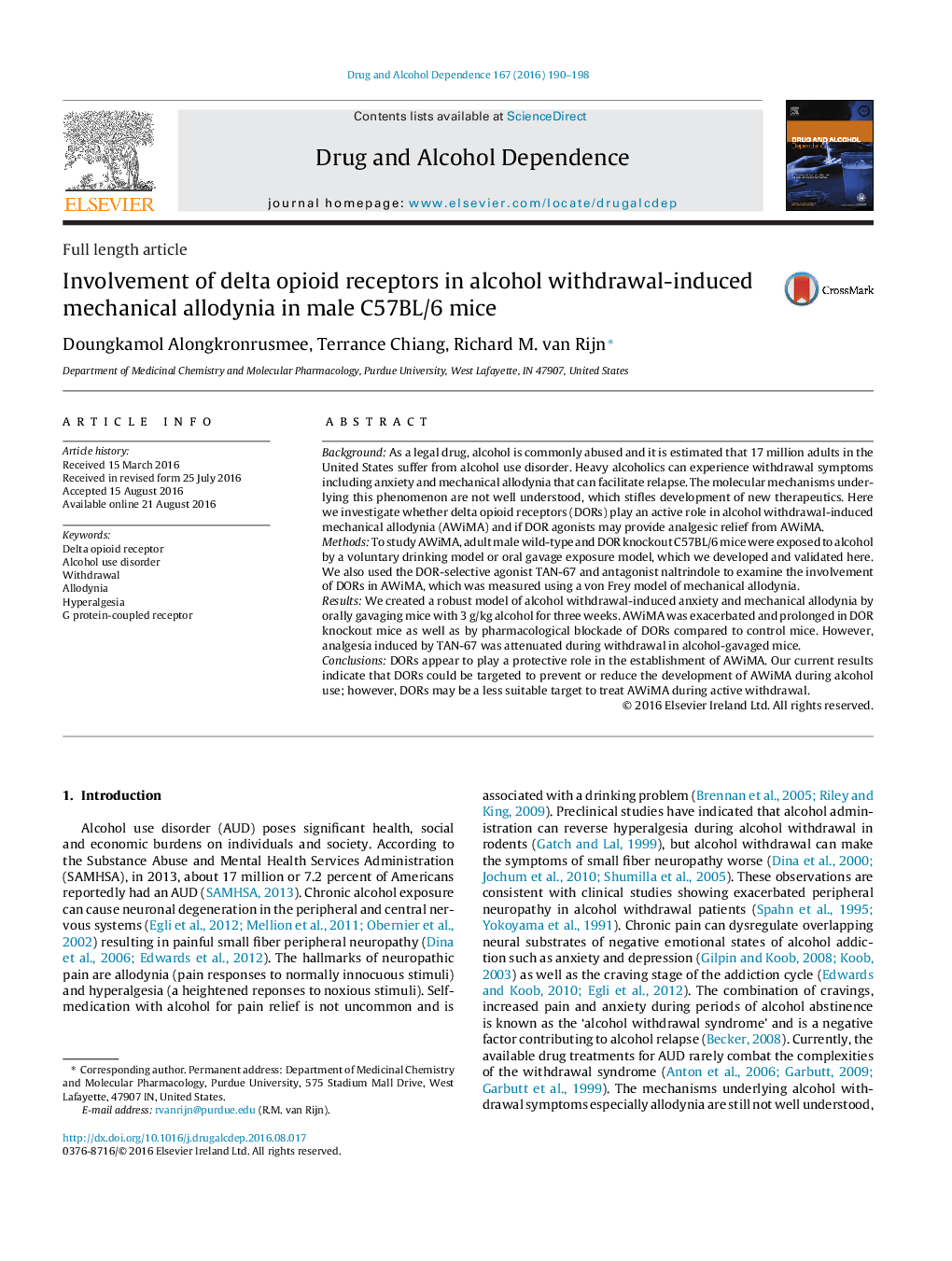| کد مقاله | کد نشریه | سال انتشار | مقاله انگلیسی | نسخه تمام متن |
|---|---|---|---|---|
| 5120512 | 1486124 | 2016 | 9 صفحه PDF | دانلود رایگان |

- Establishment of a novel mouse model for alcohol withdrawal-induced allodynia.
- Delta opioid receptor KO mice have prolonged alcohol withdrawal-induced allodynia.
- Delta opioid receptor blockade prolongs alcohol withdrawal-induced allodynia.
- The delta agonist TAN-67 loses analgesic potency during active alcohol withdrawal.
BackgroundAs a legal drug, alcohol is commonly abused and it is estimated that 17 million adults in the United States suffer from alcohol use disorder. Heavy alcoholics can experience withdrawal symptoms including anxiety and mechanical allodynia that can facilitate relapse. The molecular mechanisms underlying this phenomenon are not well understood, which stifles development of new therapeutics. Here we investigate whether delta opioid receptors (DORs) play an active role in alcohol withdrawal-induced mechanical allodynia (AWiMA) and if DOR agonists may provide analgesic relief from AWiMA.MethodsTo study AWiMA, adult male wild-type and DOR knockout C57BL/6 mice were exposed to alcohol by a voluntary drinking model or oral gavage exposure model, which we developed and validated here. We also used the DOR-selective agonist TAN-67 and antagonist naltrindole to examine the involvement of DORs in AWiMA, which was measured using a von Frey model of mechanical allodynia.ResultsWe created a robust model of alcohol withdrawal-induced anxiety and mechanical allodynia by orally gavaging mice with 3Â g/kg alcohol for three weeks. AWiMA was exacerbated and prolonged in DOR knockout mice as well as by pharmacological blockade of DORs compared to control mice. However, analgesia induced by TAN-67 was attenuated during withdrawal in alcohol-gavaged mice.ConclusionsDORs appear to play a protective role in the establishment of AWiMA. Our current results indicate that DORs could be targeted to prevent or reduce the development of AWiMA during alcohol use; however, DORs may be a less suitable target to treat AWiMA during active withdrawal.
141
Journal: Drug and Alcohol Dependence - Volume 167, 1 October 2016, Pages 190-198